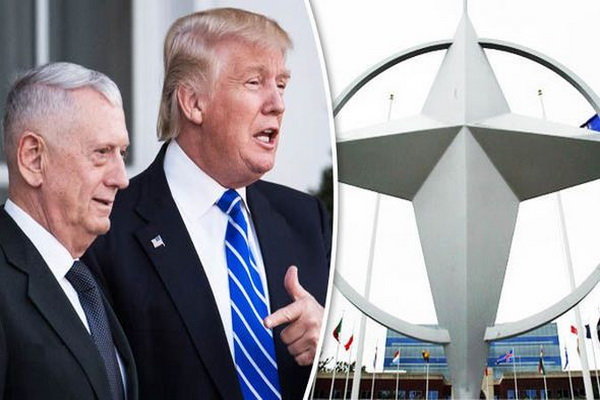Trump on Collision Course with NATO

BASIRAT POLITICAL CENTER
HANIF GHAFARI
First of all, Trump repeated his controversial demand that other NATO members
should allocate more budget to the Western military alliance. During his
election campaign in 2016, Trump had time and again called NATO an outdated
organization with an old and unreliable structure. He had also slammed the fact
that the US was paying a major part of NATO’s collective expenses. After Trump
won the race to the White House, NATO leaders hoped the new American president
would back off from his previous positions against the military alliance. But it
seems Trump has no intention of rethinking his approach on NATO.
Although people like Jens Stoltenberg, the Norwegian Secretary General of NATO,
seek to create the impression that the military alliance and the UA have normal
relations and try to highlight multilateral commitments in that regard, it is
lost on no one that NATO-Washington ties have hit rock bottom in recent decades.
Trump did not send promising messages to NATO leaders during his recent trip to
Brussels: Trump, on the one hand, stressed the need for NATO to be restructured,
and on the other, called on NATO member states to increase their tax payments to
be able to bankroll the costs of the military alliance.
The second point is that Trump made no mention of Article 5 of the North
Atlantic Treaty. Ever since NATO was established, all US presidents have
mentioned the article in their speeches. The article stipulates that if any of
NATO member countries should come under attack, all member states will come to
the mutual defense of the country. Still, Trump made no reference to that
article during his trip! Many American media outlets and analysts have referred
to this issue.
"But alas, Trump could not even bring himself to utter explicitly that the US
supports Article 5 in his remarks at Brussels, which every single US president
has done since Harry Truman in 1949,” wrote Washington Post.
There was so much criticism of Trump on the issue that after he returned from
the Brussels trip, US National Security Advisor General McMaster underlined
Article 5. In a speech apparently aimed at justifying Trump’s not mentioning
Article 5 during his Brussels trip, McMaster said:
"I think it's extraordinary that there would be an expectation that the
president would have to say explicitly that he supports Article 5. Of course he
does. He did not make a decision not to say it. It was implicit in the speech.
There was no decision to not put it in there. It is a matter of fact that the
United States, the president, stands firmly behind our Article 5 commitments
under NATO.”
Another point mentioned above regards NATO members meeting the collective costs
of the military alliance. Many European members of NATO have turned down the
request. Allocating 2% of NATO member nation’s gross domestic product (GDP) to
paying the organization’s collective costs is not something that member states
would accept easily. Still, Trump once again insisted on his demand during his
trip to Brussels. It could be all the more reason why many American media have
described Trump’s trip as unsuccessful.
Trump’s recent trip to Brussels shed light on rifts between the US and other
NATO members at this sensitive juncture. At a time when the standoff between
Moscow and NATO has intensified and even some military affairs analysts and
experts are warning about the outbreak of a major conflict between the two
sides, one needs to ponder on Trump’s confrontational approach vis-à-vis other
NATO members. All in all, the Brussels meeting showed that the US president has
no intention of backing down from its position on NATO, something that NATO
leaders themselves cannot deny.
















